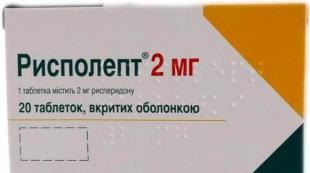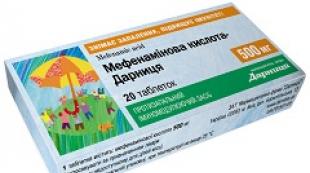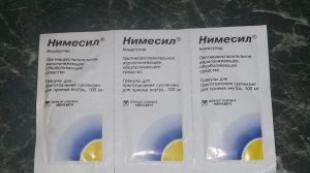Intimate hygiene of a woman, or how to care for her intimate. Intimate hygiene
As with anything, the key to keeping your genitals clean is to not overdo it. That is, pouring gels into intimate places and rubbing them with brushes is definitely not worth it. Excessive enthusiasm for washing the genitals with soap, as well as strong friction of the skin of the external genitalia, as well as poor hygiene, can lead to inflammatory processes in the skin and glands of this area of the body (balanitis in men, vulvitis in women). Therefore, it is enough to wash your genitals twice - in the morning and in the evening.
How can you wash the “intimate area” of the body?
In countries where there are no restrictions on the use of water, showers are usually taken and baths are less common. Therefore, liquid or solid soaps that are used to wash the entire body are also acceptable for cleansing the external genitalia. Intimate gels are most often not popular, because if a person takes a shower, then it is extremely rare that he uses three or four detergents - shampoo, conditioner, body soap, gel for the external genitalia, etc.
When washing, it is not necessary to use detergent every day, but it is advisable to use it at least every other day. Soap should be neutral, that is, it should not contain perfume additives, strong scented substances and a large amount of artificial colors.
In modern soap production, naphthenic acids are used, released during the purification of petroleum products (gasoline, kerosene). Thus, these are not natural soaps. The most “harmless”, that is, the simplest and most natural in composition, is laundry soap, which is unreasonably rejected by many people, especially women, for its “unattractive” appearance and lack of aromatic odor. This soap is absolutely harmless to humans, so it is best to use it for washing underwear and children's clothes. Laundry soap practically does not cause allergies or skin irritation. The content of fatty acids in laundry soap does not exceed 72%; it contains a lot of alkalis that quickly and efficiently dissolve dirt and also have an antimicrobial effect.
Baby soap made using old production technology was also a natural product, but modern baby soap production involves the use of a large number of chemical additives. On January 30, 2012, The Washington Post published an article stating that many body care and cosmetic products that fill store shelves to the ceiling contain large amounts of hazardous ingredients, including carcinogens - substances that can provoke development cancer. It turns out that an analysis of the composition of the products of the famous American company Johnson & Johnson, the world leader in the production of children's hygiene products, conducted by an independent group of researchers, showed that 23 types of the company's products contain carcinogens.
The global market also offers a huge range of “intimate” soaps and gels. Their prices are significantly higher than the cost of ordinary soap, because some intimate gels contain 30-40 chemical ingredients. Of course, advertising focuses on the significant benefits of one substance, for example, lactic acid. But to normalize the ecosystem of the vagina and perineal skin, lactic acid alone is not enough; on the contrary, it can cause damage to cells of the mucous membrane and skin. In addition, it is always important to thoroughly rinse off any soap (liquid or solid) from the surface of the skin and mucous membranes of the external genitalia.
There have been no studies comparing the advantages and disadvantages of intimate gels and soaps, but there is evidence that using intimate gels and lubricants inserted into the vagina increases the risk of contracting sexually transmitted infections. This occurs due to disruption of the normal ecosystem of the external genitalia and vagina, as well as the chemical effect of their active ingredients on the skin and mucous membranes of these organs.
How to properly wash your genitals?
Healthy people can use warm tap water to wash their genitals. There are no special limits for water temperature, but the water should be comfortable: not too hot and not too cold, in general, not cause discomfort. You should not wash your external genitalia with water from open bodies of water (just as you should not relieve yourself while in such a body of water). If there are no other sources of water, it is necessary to first boil the water from the pond for several minutes and cool it.
Women and men suffering from various diseases of the genital organs can constantly use filtered or boiled water. However, decoctions of medicinal herbs or solutions of antiseptics should not be used without strict indications.
It is also important to keep the external genitalia clean after each visit to the toilet. Previously, many toilets, both private and public, had a bidet - a small bathtub with a fountain for washing the external genitalia and anal area. With the use of toilet paper and wet sanitary wipes, many people have simplified external genital and anal hygiene to simply wiping the skin with paper.
The direction of the water stream is very important for the prevention of inflammatory processes in the genitals. It is necessary to wash the penis by directing a stream of water from the head of the penis along its body to the base. The use of washcloths, as well as the frequent use of soap, is undesirable. It is important to understand that the head of the penis is its most sensitive place, so you need to clean the head and foreskin very carefully.
For women, the direction of the water stream and hand movements should be from the pubis towards the anus, and not vice versa. In the perineum there is usually a lot of discharge that contains bacteria, and if this area of the body is not properly cleansed, the discharge can be carried into the vestibule of the vagina and the vagina itself. Women should also not direct a stream of water into the vagina or insert fingers, soap, gels or other substances or objects into it.
When to wash during sexual intercourse?

There is such a thing as “sexual hygiene” or “sexual hygiene,” but very little attention is paid to this aspect of sex, and it is barely mentioned in recommendations for body hygiene. Sexual partners can follow fashionable trends in intimate haircuts, use various skin whiteners on the external genitalia and anus, wear earrings and other jewelry (piercings), but know practically nothing about the hygiene of sexual relations itself.
First rule. Any sexual intercourse must be carried out with clean and healthy genitals. This means that both sexual partners must take care of the cleanliness of their genitals before and after sexual intercourse. If you don’t have enough time to shower, you need to use running tap water and soap. As a last resort, you can wipe the external genitalia with damp sanitary wipes. It is important that there is no accumulated secretion in the skin folds.
It is necessary to understand that the perineal area is the dirtiest area of the human body. In women, this area has three physiological openings through which “waste of life” is removed: through the urethra - urine, through the vagina - vaginal discharge, through the anus - stool. Therefore, this area always has a specific smell, and thanks to humidity and heat it simply turns into a natural incubator for the reproduction and growth of various microorganisms. The most common inhabitants of the perineum are bacteria of the intestinal group and fungi, of which there are billions in the intestine, especially the large intestine.
The entrance to the vagina is covered by the labia majora and minora, which form many skin folds where not only vaginal discharge accumulates, but also a large number of different microorganisms, especially after defecation. Therefore, if the penis is inserted into the vagina during sexual intercourse, bacteria and other microorganisms that have accumulated at the entrance to the vagina can also easily penetrate it. If the penis is also not washed, it further increases the contamination of the vagina.
After sexual intercourse, it is also very important to wash the external genitalia of both partners, removing secretions and sperm from them.
Second rule. When changing types of sex (oral, vaginal, anal), the penis must be washed with warm water and soap or at least wiped with a damp cloth.
A huge number of microorganisms live in the oral cavity, as in the rectum. Therefore, naturally, before oral sex, teeth should be cleaned with a brush and toothpaste.
During anal sex, it is recommended to use special condoms to protect the delicate skin of the penis from the effects of intestinal bacteria, which can cause serious inflammation of the urinary system in a man. After anal sex, even despite the use of a condom, the penis must be washed in warm running water and soap. This also needs to be done when partners want to continue intimate caresses with traditional coitus - in the vagina.
Third rule. Sexual partners should have their own towels that are not shared with other relatives or guests. Abroad, most often each family member has at least two towels: one small for the face, the other large for the body. I recommend having another small towel for the external genitalia. Also, each family member must have their own washcloth.
So: it doesn’t matter what exactly you use to keep your genitals clean, it is important that you follow the rules of hygiene of the external genitalia and sexual hygiene.
Animated video about the rules of intimate hygiene for women
Often men do not think about basic hygiene standards. But not only male strength, but also health depends on their observance.
As practice shows, not every man is competent in matters of personal hygiene. Taking a shower once every few days is not enough, and sometimes even unsafe for your health.
Cleanliness Skill
Parents should familiarize their child with the first hygiene rules in infancy, and he must follow them throughout his life. With age, when a boy’s hormonal background begins to change, observing simple hygiene standards will help him avoid many troubles, including inflammatory diseases of the skin and genital organs.
Personal hygiene includes a set of hygienic actions, such as a daily general shower, care of the genitals, perineum and armpits. By the way, it is better to remove hair in the groin and armpits - this will allow you to more thoroughly care for the skin of delicate areas.
Water procedures
Many inflammatory diseases of the male genital area can be avoided if you take your usual water procedures seriously. A man's day should begin and end with a shower.
The water temperature can be adjusted as desired; you just have to remember that it is advisable to rinse the groin area with a cool stream - the genitals should not be overheated.
A bidet is a necessary thing that can greatly facilitate daily hygiene. As a cleanser for intimate hygiene, it is best to choose special gels and foams that have a neutral pH. It is advisable not to use feminine products - they have an acidic environment, while men need an alkaline one. In this case, neutral products with plant extracts are suitable.
Intimate hygiene
A man, like a woman, needs to perform personal hygiene at least 2 times a day - morning and evening. During the day, smegma accumulates under the foreskin of the penis - a mixture of excretory secretions, dead epithelial cells and moisture. It is a favorable environment for the development of pathogenic microbes. This is why thorough toileting of the genitals using warm water and a gentle detergent is so important.
Penile hygiene
Before you begin the procedure for hygienic cleaning of the penis, wash your hands thoroughly with soap and dry them with a clean or paper towel. A few recommendations:
- the water should be moderately warm and the foam should be plentiful in order to remove all discharge from the penis;
- It is not advisable to use regular shower gel or soap: the fragrances included in such products can irritate the delicate area;
- pull back the foreskin and rinse the glans; Rinse the whisk and bridle especially thoroughly;
- Finally, rinse the groin and perineum area with cool water.
Testicular hygiene
The reproductive function of a man largely depends on the health of the testicles, because it is in them that sperm are formed. It is important to know that the temperature of the testicles should be 4 degrees below body temperature, and therefore overheating of the scrotum should be avoided. For example, immersing the testicles in hot water for just a few minutes can prevent a woman from being fertilized for six months! After a warm shower, urologists recommend rinsing the scrotum with cool water.
If a man has a sedentary job, he needs to get up and walk periodically so as not to overheat the scrotum. Ideally, it is advisable to perform simple exercises to improve blood circulation in the pelvic organs.
Perineal hygiene
It is also important to take care of the perineal area, thoroughly cleaning it after defecation with soft toilet paper from front to back or using a bidet.
In the summer, in order to avoid inflammatory processes in the perineum that occur due to excessive sweating, a man needs to wash the groin area with cool water and use powder or baby talcum powder.
Hygiene before and after sex
Before sexual intercourse, as well as after it, be sure to take a shower, thoroughly washing the genitals and penis from accumulated smegma and urine residues. This will save partners from many diseases of the genital area.
The range of gels for intimate hygiene for men is quite wide. Options: Intimo gel with chamomile from Nivea (approximately 160 rubles); organic gel with plant extracts from Melvita (approximately 735 rubles); Green Mama gel (approximately 186 rubles); Epigen gel (approximately 650 rubles).
The right underwear
Choosing the right underwear plays a big role. Experts consider wide cotton panties, popularly called “family panties,” to be such. They do not put pressure on the genitals and do not overheat the testicles. Linen must be changed daily.
What can result from failure to comply with simple hygiene requirements? To the most unpleasant thing, namely, serious health problems: from inflammatory diseases such as phimosis, prostatitis, cystitis, balanoposthitis, to syphilis, gonorrhea and even HIV infection.
In the US, 80% of men are circumcised. Not long ago, scientists suggested that such a procedure could protect against HIV infection. The thing is that during circumcision the foreskin is removed, where there may be cells that are especially susceptible to the immunodeficiency virus.
Expert: Galina Filippova, Candidate of Medical Sciences, general practitioner
Photos used in this material belong to shutterstock.comIntimate hygiene is such a delicate topic that people usually try not to touch upon it. However, such silence can lead to big troubles.
Rules of intimate hygiene
- To wash, you should not use soap, but only warm water or special compositions for intimate hygiene that contain substances that do not disturb the acidity of the vaginal environment and create conditions for the growth of lactobacilli. You need to wash yourself with clean hands, at least twice a day.
- The direction of the water jet when washing and hand movements should be directed from front to back, so as not to introduce infection into the vagina from the anus (by the way, after bowel movements, the movement of toilet paper should be in the same direction). After washing, moisture is not wiped off, but blotted so as not to accidentally scratch the delicate surfaces.
- The area around the anus should be washed with regular toilet soap, because intimate hygiene gels do not provide the necessary disinfection for this area.
- The towel should be clean, soft, and should only be used by its owner.
- During menstruation, you should not take a bath or swim in a pool or body of water. It is better to avoid sexual intercourse. During menstruation, sanitary pads should be changed at least four to five times a day.
- If you use vaginal tampons, remember that you need to change your tampon every two hours. In most developed countries, doctors do not recommend using tampons regularly.
- It is advisable not to constantly use sanitary pads unless there is a special reason for it. Women's daily discharge is normally so insignificant that they do not require the use of pads. If you are concerned about increased vaginal discharge between periods, it is better to consult a gynecologist.
- Douching (rinsing the inside of the vagina with various solutions) should only be done if prescribed by a gynecologist. They are not only unnecessary for regular hygiene, but can also seriously damage the vaginal microflora.
Why is it necessary to pay so much attention to such seemingly simple things?
The fact is that the “center” of the female reproductive system - the uterine cavity - should normally be sterile so that the developing embryo is not damaged by bacteria or viruses.
The vaginal opening is anatomically located near the anus, so it is necessary to pay increased attention to the peculiarities of feminine hygiene in order to avoid infection in the woman’s internal genital organs. It is also necessary to avoid creating favorable conditions for the proliferation of pathogens in the perineal area.
The uterus becomes especially vulnerable to infections during periods such as menstruation, since during menstruation there is no protective plug of mucus in the cervix.
In addition to the mucus barrier in the cervix, the path to microorganisms is blocked by bacteria that inhabit the vagina. The normal microflora of this organ consists of 90% lactobacilli that secrete lactic acid. The acidic environment of the vagina inhibits most pathogenic bacteria. If for some reason the environment in the vagina becomes alkaline rather than acidic, the number of lactobacilli is greatly reduced, and other microbes can occupy the vacated space. This condition is called dysbiosis, and if the anaerobic flora predominates - bacterial vaginosis.
The simplest and most common cause of a violation of the acid-base balance in the vagina is the entry of alkaline soap suds into it while washing. It's okay if this happens once. But constant alkaline “blows” lead to serious microflora disturbances, the proliferation of pathogenic bacteria, and, accordingly, inflammatory disease of the female genital area.
The protective capabilities of the genital organs depend on the woman’s age. Until the age of 17-18, that is, before the onset of puberty, the microflora of a girl’s vagina is easily disrupted by any adverse effects. Its stability also decreases in women who have reached menopause. During these periods of life, the rules of intimate hygiene must be observed especially carefully.
Make an appointment
For more than 10 years, we have been providing medical care to patients of different age categories. Our main advantage is an individual approach to each visitor.
Patient reviews
Olga, 37 years old, Moscow
Good afternoon. Mikhail Ivanovich is a doctor from God. He helped me avoid pyelonephritis. While treating cystitis, I developed a complication. Before that, I was treated in another private clinic, whose doctor could not help me. Or from lack of experience, because... I was young, or because I couldn’t find the right medications. I was tired of endless tests and purchases of, as the results showed, uselessly expensive drugs. At work, a colleague told me that Human Health has an experienced urologist. After the first visit and tests, Mikhail Ivanovich began competent treatment and selected the necessary medications and procedures for me, which began to work almost immediately. I left that private clinic and never set foot again. After 3 months I feel much better and I think I will soon be able to fully recover. Now I have my own doctor, whom I recommend to friends and family. Thank you, Mikhail Ivanovich I wish you health and long life
All reviewsIntimate hygiene
Our leading gynecologists and urologists recommend that you follow basic hygiene rules in the intimate area several times a day, regardless of the time of year and living conditions. Women during menstruation need to wash more frequently - up to 5 times a day. Do not forget about hygiene standards before sexual intercourse, as well as after it. To understand how important correct genital hygiene is, we suggest you familiarize yourself with some aspects of its norms, as well as possible complications from neglecting it.
Find out more about proper care and prevention of urological and gynecological diseases from your doctor
Leave your phone number.
The clinic administrator will call you back.
Make an appointment
Specialist consultation
Few people are aware that lack of intimate hygiene has a detrimental effect on the reproductive function of partners.
- A woman who does not take all necessary hygiene measures during menstruation may subsequently suffer from inflammatory processes in the uterine cavity. The most common among them is endometritis. It is this that provokes the development of adhesive disease and directly leads to. During the period of “critical days,” menstrual blood feeds on pathogenic microorganisms, transporting them to the uterus and provoking a pathogenic process.
- The basic rule of intimate hygiene for men is mandatory hand washing before using the toilet. By touching your genitals with dirty hands, you risk infecting them with the most unpleasant diseases, which can also lead to infertility. Hand hygiene is especially important in public places and public toilets.
- Thrush is another common companion for women who neglect adequate hygiene. The candidiasis virus is easy to “catch” in public places: bathhouse, sauna, beach or pool. Therefore, a woman must strictly monitor the cleanliness of her genitals after visiting such places.
- A rash on the genitals can appear due to the development of sexually transmitted diseases, and a frequent cause of it is incorrect intimate hygiene. One of the most common diseases associated with the appearance of acne on the external genitalia is syphilis. It can occur in both men and women.
- Human papillomavirus (HPV). The disease can be transmitted sexually, so it often occurs in those who do not consider it necessary to wash themselves after sexual intercourse, as well as use contraception with a new or casual partner.
How to properly care for your genitals?
Key rules of intimate feminine hygiene:
- Ideally, try to wash yourself after every trip to the toilet. If you do not have this opportunity, purchase special wet wipes for intimate hygiene at the pharmacy;
- Mandatory washing must be done after waking up and before going to bed. The stream of water and the movement of the hand should be directed from front to back, but in no case vice versa. The water should be warm. Do not use hot water: it can dry out the delicate skin of the intimate area. Too cold water can cause colds in the reproductive system;
- Do not use traditional soap to cleanse the intimate area, as it can disrupt the acid-base balance in the vagina. Our experts recommend choosing gels for intimate hygiene, carefully studying the composition. Opt for products without SLS, fragrances and dyes. The gel should include soothing herbal extracts and lactic acid;
- During menstruation, try to wash yourself at least 4-5 times a day. The rules of personal hygiene also include monitoring the cleanliness of the tampon and pads on critical days. Do not forget about timely change of funds;
- After washing, gently dry your genitals with a soft towel, do not rub the skin or press it with force;
- Use panty liners, especially during the ovulatory phase of the cycle, which is characterized by heavy mucus discharge;
- If you have thrush or other sexually transmitted diseases, refrain from sexual intercourse during treatment. The optimal caring gel with a certain Ph level should be selected for you by your doctor, guided by a smear examination and the results of other tests;
- To prevent certain diseases, it is recommended to use douching with herbal decoctions.
How to monitor the health of the genitourinary system for men?
- Check your penis regularly for abnormal changes. If you notice a rash, discharge or growths, consult a doctor immediately;
- Be sure to wash your hands before going to the toilet. After this, wash the head of the penis with special soap and warm water so that pathogens do not penetrate under it. If this is not possible, use wet antibacterial wipes for men’s hygiene;
- When taking a shower, pay special attention to cleansing the genitals and perineum;
- Do not take too hot a bath: this significantly harms reproductive function;
- Avoid sexual intercourse during your partner’s menstruation: for her, this can lead to infection of the uterus, and for you, an inflammatory process in the urethra if pieces get under the head of the penis. We also strongly recommend abstaining from intimacy in the first months after childbirth, when the woman inevitably continues to bleed;
- Just like women, you should definitely wash your genitals twice a day, morning and evening;
- Use specialized soap for men's intimate hygiene. Be careful with aromatic products: they can cause irritation and inflammation.
The main thing is not to “overdo it”
Excessive intimate hygiene means abuse of cleansing procedures. Some women are so concerned about pathogenic bacteria that they prefer harsh antiseptic soap to a soft intimate gel. This is fundamentally wrong: even relatively neutral baby soap can upset the acid balance in the vagina.
- Frequent douching and washing, especially with harsh soaps, kill beneficial and nutritious microflora in the vagina, reducing the level of barrier function and causing a number of uncomfortable sensations;
- Washing with hot water and antiseptic soap can irritate and dry out the delicate skin of the external genitalia;
- Incorrectly selected soap can cause infection of the internal genital organs. Our gynecologists claim that at least half of urgent consultations could have been avoided if women had chosen the right means for washing;
- An intimate gel should not contain a high concentration of alcohol, fragrances, dyes and sulfates. Its Ph level must correspond to the acid-base balance of the genital organs, i.e. reach 3.5-4 marks.
An important component of proper hygiene is its observance by both partners. By following simple rules, you will avoid frequent visits to doctors and the development of unpleasant diseases of the genital area. Doctors at our clinic will select the optimal care for your intimate area, even after illnesses.
Our specialists
Genital hygiene(Greek hygieinos bringing health, healing), part of personal hygiene, including hygienic rules, the implementation of which contributes to the preservation and strengthening of human health, ensures the normal function of the genital organs, as well as the prevention of their diseases. It has features depending on age, gender and physiological state of the body.
Genital hygiene women takes into account the characteristics of development in different periods of her life. The mucous membrane of a girl’s genital organs is delicate, easily vulnerable, and has little resistance to infections, which necessitates maintaining their special cleanliness. Without proper care, vulvitis can develop. After each urination and defecation, as well as in the morning and always before bedtime, the genitals should be washed with warm water. Highly alkaline soaps (household soaps) and strong disinfectant solutions (soda, potassium permanganate) cannot be used for washing, which leads to the destruction of the protective water-lipid-mucus-salt layer. You need to wash with a clean hand, gauze or cotton wool in the direction from the pubis to the anus.
In organized children's groups there should be individual disinfected and marked pots: washing should be done with individual tampons. After washing, the girl’s skin should be dried by applying a clean diaper (without rubbing, but only with blotting movements). You cannot use shared towels and diapers for drying, and you cannot take children with you to the bath. At the slightest sign of genital skin irritation, take hygienic baths with chamomile decoctions (series) or a slightly pink solution of potassium permanganate. After careful but thorough drying, the irritated areas are lubricated with sterilized sunflower oil, etc.
Children from an early age are taught to regularly empty the bladder and intestines, since delay in natural bowel movements (for example, urinary retention) leads to overflow of the rectum and bladder, which negatively affects the function of the pelvic organs, and in girls it can cause disruption of normal position of the uterus. By the age of 5 × 6 years, children should be taught how to care for their genitals independently. It is necessary to teach carefully so as not to cause an early awakening of sexual feelings, which can occur due to insufficient hygienic care (residues of feces and urine can cause itching and irritation of the genitals). Children should wear comfortable underwear made from natural fabrics that does not restrict movement and does not fit tightly to the genitals. Panties need to be changed daily, especially for girls. Vaginal discharge, which is also present in little girls, ends up on panties along with urine and hardens, leading to irritation of the skin and mucous membrane of the vulva. Bacteria that can cause vulvovaginitis can multiply in these secretions. If there is abnormal discharge or other signs of inflammation, you should consult a gynecologist (see Gynecology).
In adolescence, by the time of puberty, a girl must master all the necessary rules genital hygiene(See Puberty). She should be prepared in advance for the onset of menarche. Lack of psychological readiness in excitable girls can be the cause of mental trauma and psychogenic disorders of the menstrual cycle. During menstruation, the genitals are more susceptible to infection due to a slight decrease in the body's defenses and the presence of a wound surface in the uterus. Even with normal menstruation, jumping and heavy physical exercise, as well as cycling and swimming, are not allowed.
It is better to wash in the shower, take a bath and visit the sauna; At least twice a day, you should wash your genitals with warm water and soap (you cannot wash directly in a basin). To collect menstrual blood, it is recommended to use sanitary pads made of bandages and cotton wool (you can use napkins made of old soft cotton fabric, previously boiled and ironed). Pads should be changed as they become saturated with blood, without allowing it to dry out, which will prevent injury to the skin of the perineum. If the mucous membrane of the genital organs is irritated, it is useful to use weak infusions of chamomile, string, and tea when washing. It is recommended to keep a calendar of the menstrual cycle, which records the timing of the appearance of menstruation and its duration.
After the end of menstruation, a girl or woman must follow the rules of caring for her genitals. The folds between the labia majora and minora, the fold of skin covering the clitoris, the vestibule of the vagina - all these are places where the remains of urine and sexual secretions settle, which, when decomposed, can cause a sharp unpleasant odor, subsequent irritation, and sometimes inflammation. Therefore, at least 2 times a day, the genitals are washed with warm water and soap, after washing your hands. First, the external genitalia are washed, then the skin of the thighs, and lastly the anus area (it is unacceptable to sit in a basin while washing). Linen is changed daily. Vaginal douching is not recommended, especially during menstruation, since the vagina has its own chemical microenvironment that protects the internal genital organs from the effects of microorganisms. Vaginal douching should only be performed on the recommendation of a doctor.
Genital hygiene Women in menopause are associated with changes in the function of the nervous system, disturbances in hormonal balance, metabolic processes, changes in the anatomy and physiology of the genital organs. For most women, the onset of menopause does not cause any discomfort or pathological phenomena, and therefore it is enough to keep the body and genitals clean. When washing, it is not recommended to get too carried away with disinfectant solutions of soda and potassium permanganate, as this leads to dry skin and a decrease in its resistance to infection. Herbal decoctions and sterilized sunflower oil are preferable for hygienic care.
If the mucous membrane of the genital organs is extremely dry, you can use streptocidal emulsion (for no more than 2 weeks in a row and in the absence of intolerance to sulfonamides), as well as a nourishing cream with vitamin A for dry, especially sensitive skin. Due to hormonal changes in the body, some older women may experience itching of the external genitalia. To avoid this, it is recommended to wear only cotton or linen underwear, avoid overheating the body during sleep, and exclude spicy foods, smoked foods, and extractive substances from food. If itching appears, you should consult a gynecologist, who should be visited for preventive measures at least 2 times a year, since at this age the possibility of various diseases of the genital organs increases.
Genital hygiene for men is to regularly wash the skin of the genitals and perineum from an early age. It should be borne in mind that in boys under 5 years of age (if ritual circumcision has not been performed), phimosis can be physiological, and therefore it is not necessary to expose the head of the penis for hygienic measures. In case of inflammation of the foreskin and the appearance of purulent discharge from the preputial sac, you should consult a urologist (see Urology). After 5 years, physiological phimosis passes, and in most, the foreskin allows the glans penis to be opened to wash away the accumulating smegma, as well as mucus and drops of urine, which are a breeding ground for microbes. Washing is carried out with warm water and soap daily, thoroughly drying with blotting movements.
During adolescence, a boy must acquire the skills to independently care for his genitals. The teenager must be warned about the appearance of wet dreams and psychologically prepared for this. After a wet dream, it is necessary to wash the genitals with warm water. It is important to warn him at this age against casual sexual activity, gently warning him about possible harmful consequences (see Sexually transmitted diseases). Keeping the genitals clean should become the norm of behavior for boys and adult men throughout their lives. In old age, in addition to hygiene, it is mandatory (at least 2 times a year) to visit a urologist to exclude age-related changes in the prostate gland, as well as cancer of the genital organs. If blood appears in urine and semen, you should immediately contact a urologist.
Sexual hygiene requires additional hygiene rules. It is advisable that the man and woman take a shower before sexual intercourse. Be sure to wash the external genitalia with warm water and soap before and after coitus (individual towels for drying are required). After the first sexual intercourse, it is necessary to abstain from sexual intercourse for 4 5 days (see Sexual Abstinence) so that the tears in the hymen can heal, observing careful care during this period. genital hygiene. You should refrain from sexual intercourse during menstruation, as infectious agents may enter the genital tract and cause increased bleeding; in addition, sexual activity during menstruation can cause inflammation of the urethra (urethra) in a man, which is associated with the entry of menstrual blood clots into the canal. During pregnancy, sexual activity is limited during the first 2 3 months, and completely excluded in the last 2 months before childbirth. Sexual activity is also excluded for 6 8 weeks after birth.









